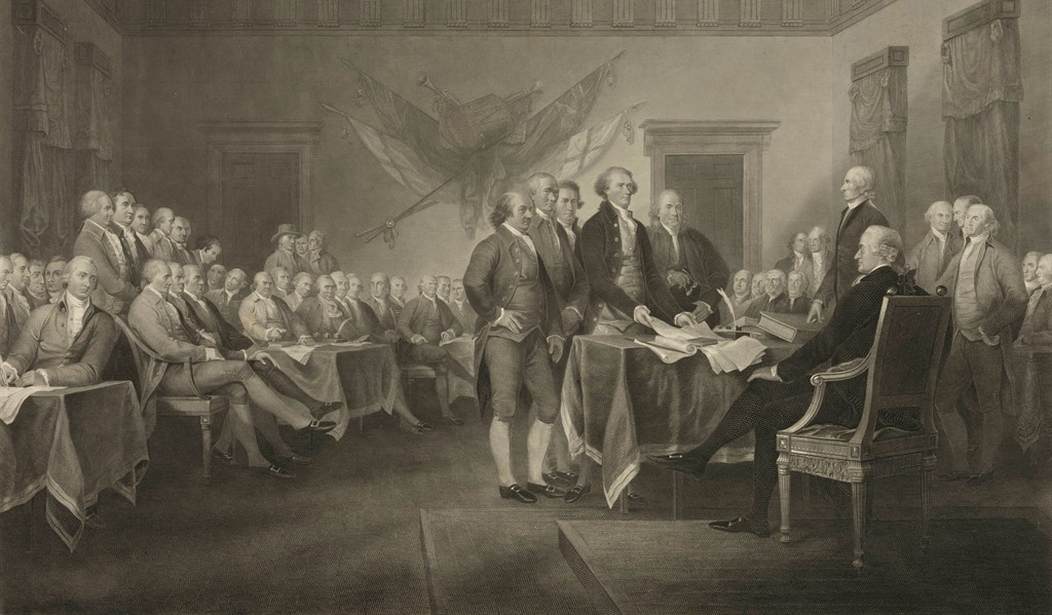With all the turmoil in the political sector right now, and with all the fuss over what the Constitution does and doesn’t allow – and the Democratic party’s casual disregard of the Constitution except for when it serves their purposes – it’s good to go back and look at what the Founders intended. And, indeed, their thoughts and the documentation of their stance on liberty goes back to well before the American Revolution.
Some time ago I went back and re-read Cato’s Letters, or Essays on Liberty Civil and Religious and Other Important Subjects (Complete), a series of essays published by “The Library of Alexandria” and compiled by two characters using the nom de plumes John Trenchard and Thomas Gordon. The essays were first published from 1720 to 1723 and formed a strong influence on the thinking of many of our Founding Fathers.
Named for the famous Roman statesman Marcus Porcius Cato, he of the staunch republican opinions, the notorious Stoic who opposed the tyranny of Caesar unto his last breath, the Letters are a pioneering set of statements in favor of the principles of liberty, and of limits on and accountability of government.
I can’t recommend this work strongly enough. One of my favorite professions of principle, of liberty, is from the Letters: Nisi forte non de serveitute, sed de conditione serviendi, recusandum est a nobis or, in English, “We do not dispute about the qualifications of a master, for we will have no master.”
That’s right. A more American statement was never made.
A few interesting excerpts follow. Note: These are presented in the original, with the original spellings and turns of phrase.
From No. 11, "The Justice and Necessity of punishing great Crimes, though committed against no subsisting Law of the State."
Laws, for the most part, do not make crimes, but suit and adapt punishments to such actions as all mankind knew to be crimes before. And though national governments should never enact any positive laws, never annex particular penalties to known offences; yet they would have a right, and it would be their duty to punish those offences according to their best discretion; much more so, if the crimes committed are so great, that no human wisdom could foresee that any man could be wicked and desperate enough to commit them.
In other words, one of the few legitimate roles of government is protecting citizens from being deprived of their property by force or by fraud; but, should government fail in that task, the citizen has a moral right to redress by other means. This leads into a principle that we should adhere to today, a fundamental principle of free market economies: The only acceptable manner of trade is voluntary trade, in which both parties perceive a gain. If a trade is conducted by force, it is theft. If it is conducted by deceit, it is fraud.
From No. 15, "Of Freedom of Speech: That the same is inseparable from publick Liberty."
Without freedom of thought, there can be no such thing as wisdom; and no such thing as publick liberty, without freedom of speech: Which is the right of every man, as far as by it he does not hurt and control the right of another; and this is the only check which it ought to suffer, the only bounds which it ought to know.
The only limits to freedom of speech, then, are that one may not cause physical or financial harm to another. Thus incitements to violence are not protected, nor is slander or libel. But “hate speech,” by which term many today choose to define as “speech I don’t agree with” not only is protected, but must be protected, else the very concept of freedom of speech is meaningless. This statement also notes the Jeffersonian apocryphal “If it neither breaks my arm nor picks my pocket, it’s none of my affair.”
From No. 33, "Cautions against the natural Encroachments of Power."
It is nothing strange, that men, who think themselves unaccountable, should act unaccountably, and that all men would be unaccountable if they could: Even those who have done nothing to displease, do not know but some time or other they may; and no man cares to be at the entire mercy of another. Hence it is, that if every man had his will, all men would exercise dominion, and no man would suffer it. It is therefore owing more to the necessities of men, than to their inclinations, that they have put themselves at last that he might do what he would, he let loose his appetite for blood, and committed such mighty, such monstrous, such unnatural slaughters and outrages, as none but a heart bent on the study of cruelty could have devised.
To simplify: Power corrupts, and absolute power corrupts absolutely. We certainly have seen enough evidence of that in recent years, as seen in the ongoing “Russia collusion” imbroglio. That issue gives one a stunning view of the arrogance of power, and it's a sure thing that we haven't seen the depth and breadth of that arrogance in its entirety, at least, not yet.
Read More: It's On: DOJ Announces What They're Doing About Gabbard Revelations
Obama DNI James Clapper Reveals He's 'Lawyered Up' - and He's Not a Happy Camper
It’s important to remember the context of the times in which these essays were written. The early 18th century was a time when slavery was broadly accepted, when pirates were hanged without trials, and when women were excluded from government altogether. But the Letters are nonetheless an opening shot in the battle which continues today, here in the United States, where encroachments on liberty are daily proposed.
Everyone who is concerned with limited government should, nay, must read these works. You can get a free Kindle app for a PC if you don’t have a reader or an app on your phone, and the Kindle version (linked above) is only $6.99. You could hardly find a better way to spend seven bucks.















